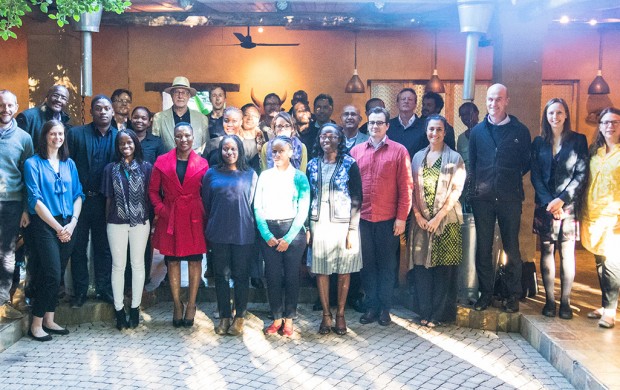Botswana launch of AMBITION-cm project on HIV-associated cryptococcal meningitis
Almost twenty per cent of HIV-related deaths are directly attributable to cryptococcal meningitis (CM). The AMBITION-cm project was developed to evaluate a new treatment course in a phase III clinical trial. In January 2017, the EDCTP grant agreement for the study with a total value of almost €10 million was signed.The AMBITION-cm project is coordinated by Dr Joseph Jarvis of the London School of Hygiene & Tropical Medicine, United Kingdom. On 30 and 31 May 2017, the project was launched at a kick-off meeting in Gaborone, Botswana in which EDCTP Project Officer, Dr Christy Comeaux, also took part.
The current recommended treatment for CM in HIV-infected patients is a two-week course of amphotericin B, an old and toxic drug, with mortality around sixty per cent of patients. Treatment requires a daily intravenous infusion, frequent blood tests to monitor for side effects, and a prolonged hospital stay. This makes the standard course of amphotericin B difficult to administer in most African hospitals.
The AMBITION-cm project aims to determine whether a short treatment course of a single intravenous high-dose liposomal amphotericin (L-AmB, Ambisome), a newer formulation of amphotericin B, is as effective as the 14-day amphotericin B-based therapy in averting all-cause mortality in patients with cryptococcal meningitis. A total of 850 patients will be recruited in 6 sites in Botswana, Malawi, South Africa, Uganda and Zimbabwe, making this the largest trial ever conducted for this HIV-associated co-infection.
“Cryptococcal meningitis causes several hundred thousand deaths per year, mostly in sub-Saharan Africa. Positive results of this study would provide an effective and practical first-line treatment. This has the potential to halve the mortality of HIV-associated cryptococcal meningitis. It would transform the management of late-stage HIV infection in Africa and prevent many thousands of deaths.”
Dr Joseph Jarvis, AMBITION-cm project coordinator
If effective, the new treatment would provide for the first time a safe and shortened treatment for cryptococcal meningitis in low-resource settings. Administering a single intravenous dose of liposomal amphotericin would be feasible in nearly all hospital settings. Routine monitoring is expected to be easier in view of the anticipated safety profile of the treatment course, which could result also in a shorter hospital stay. Ultimately, this could lead to patients having better access to a better treatment while the health care system would save on treatment costs.

